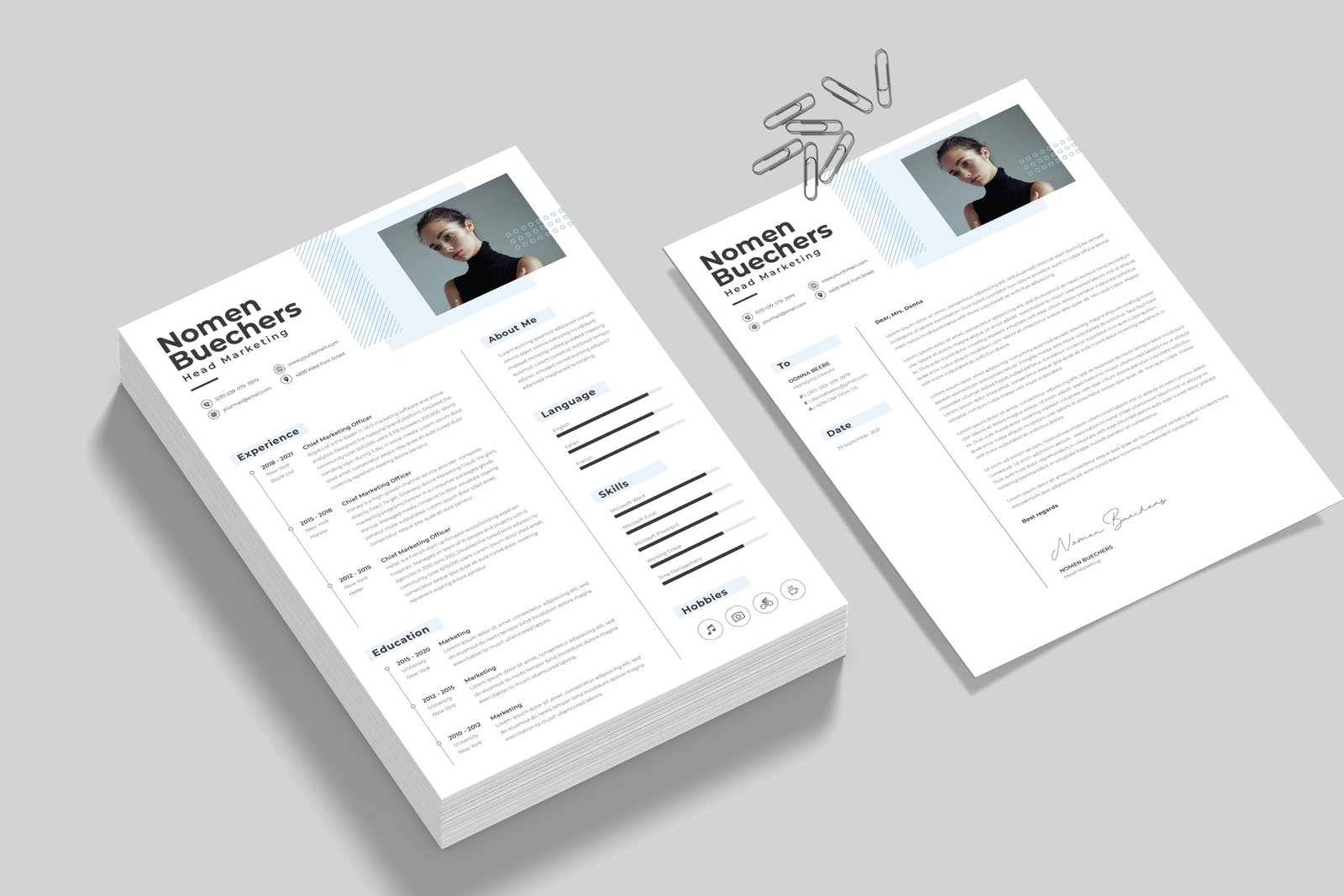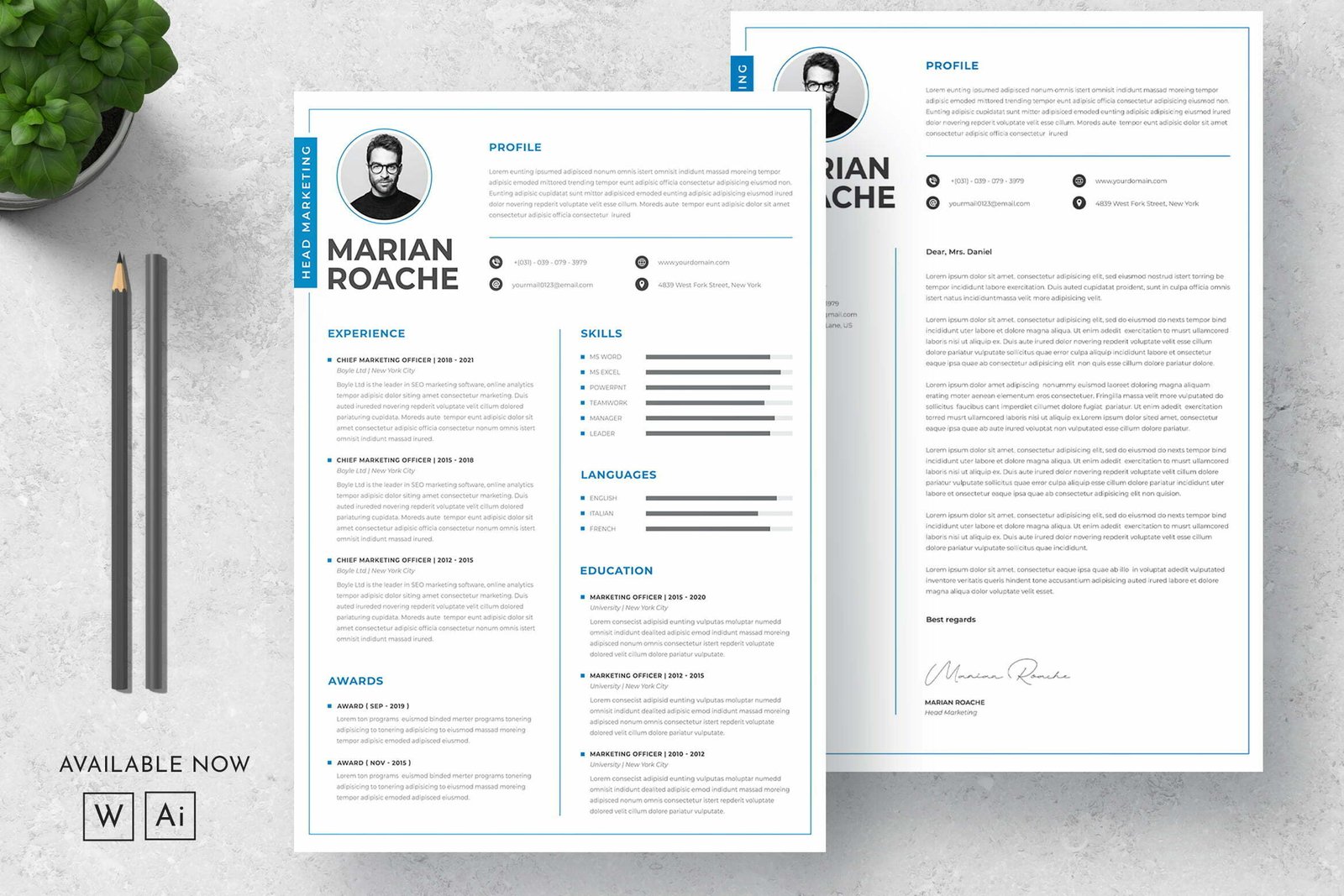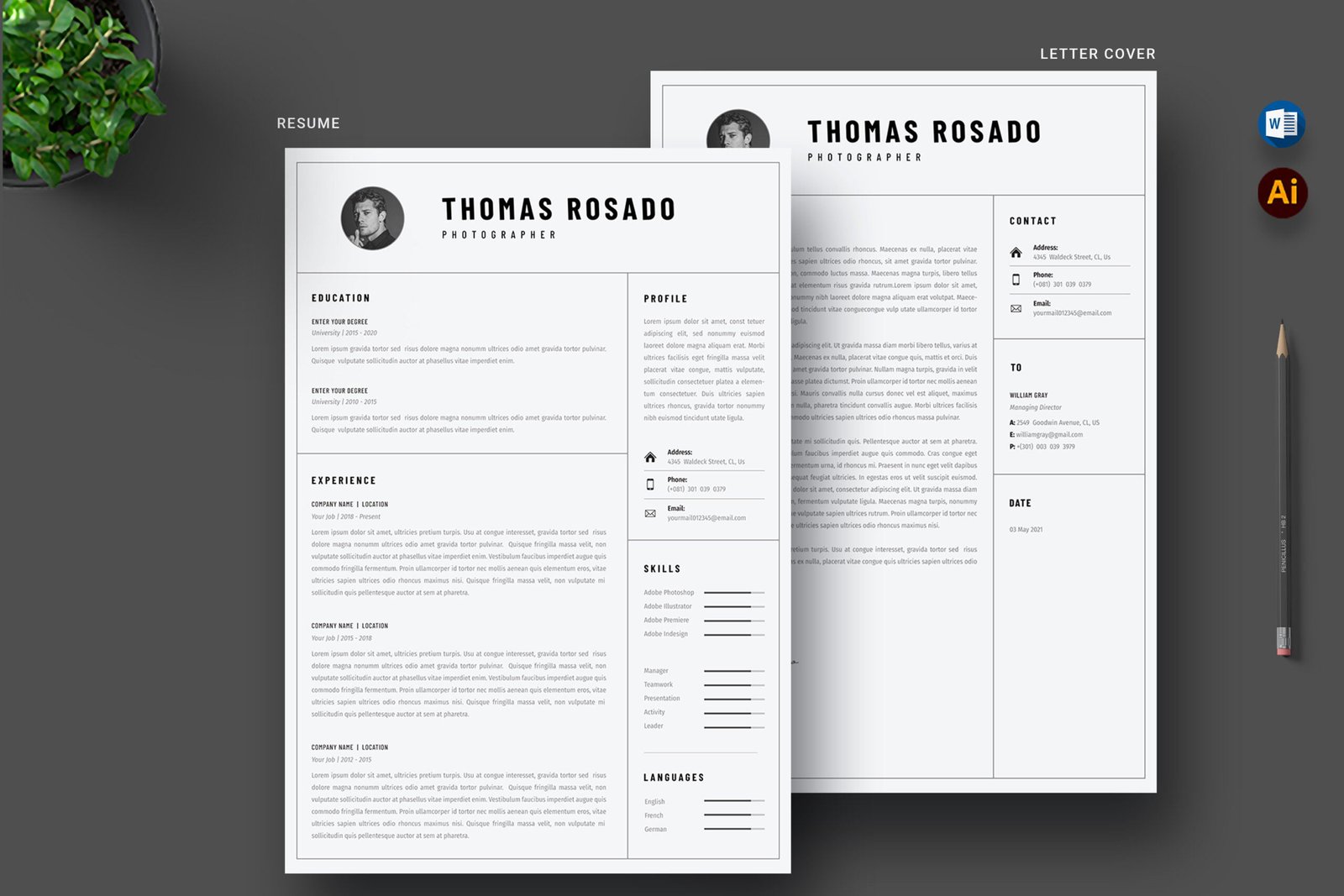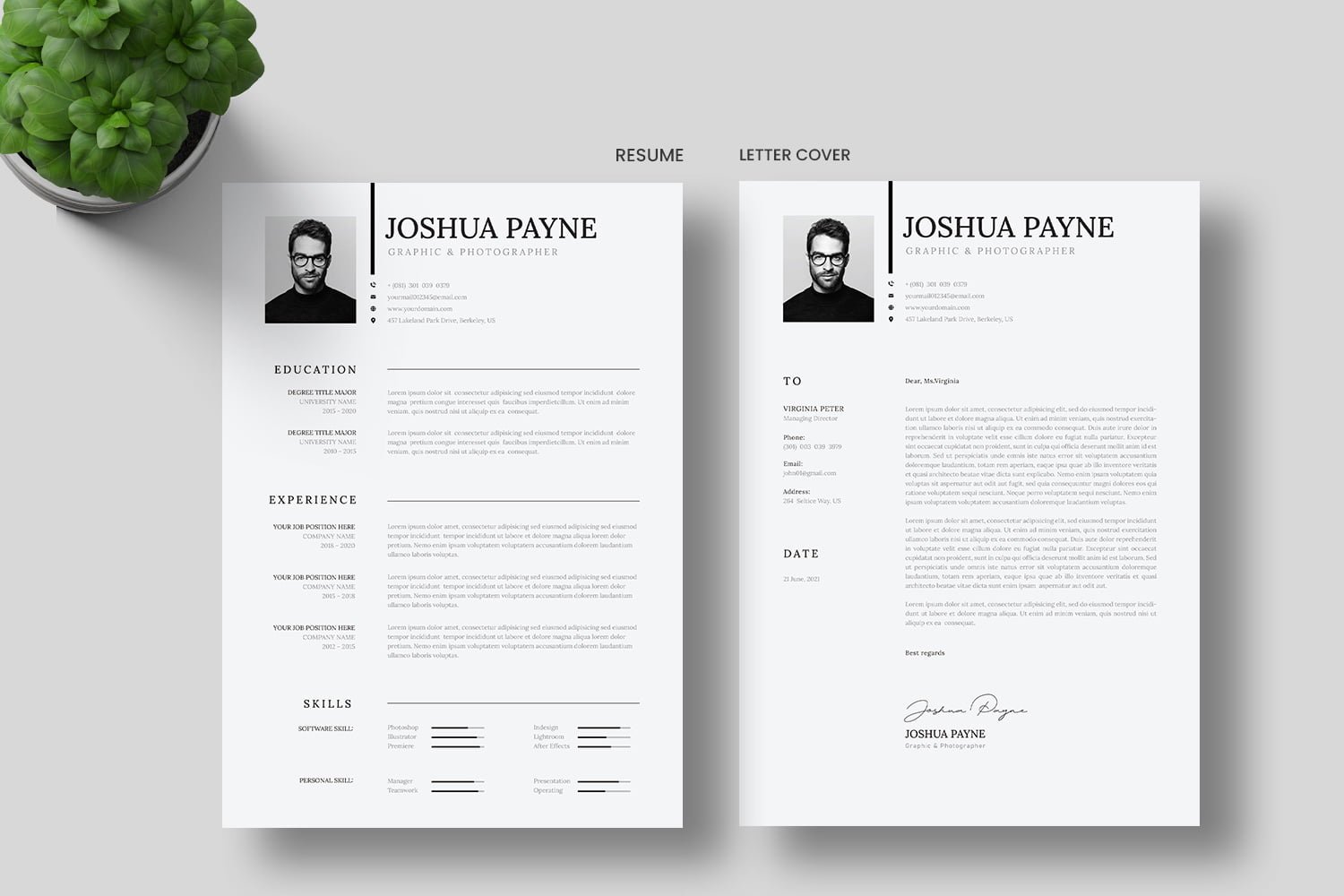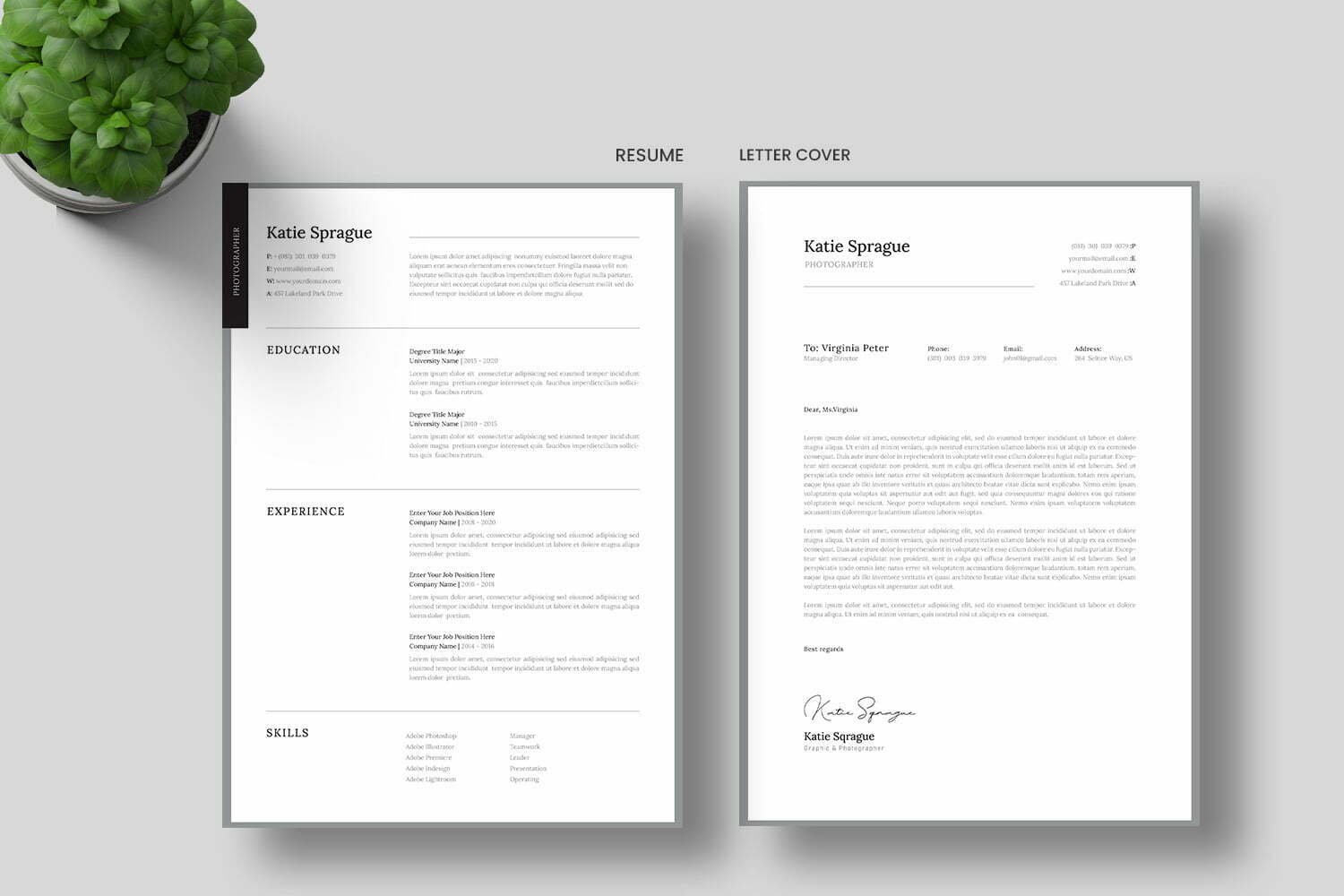Download this job winning Resume/ CV for Industrial Engineer
Are you struggling to create a standout resume for Industrial Engineer that showcases your skills and experience? Look no further than our professionally designed resume template!
Our modern resume template for Industrial Engineer is designed by experts in the field and has been approved by HR leaders from around the world. This template is perfect for anyone looking to make a strong impression and stand out in a competitive job market.
The template features a clean and modern design that is easy to read and navigate. It includes all the necessary sections, including a Career objective, profile summary, education, work experience, skills, and references. Additionally, it also comes with a sample cover letter for Industrial Engineer that you can easily customize and use to make a strong first impression.
Using our template is simple and straightforward. You can download the document and edit it with your personal and professional information. The template is fully customizable, allowing you to adjust the layout, fonts, colors, and sections as needed to create a resume that is uniquely yours.
By using our professionally designed template, you can ensure that your resume is visually appealing and easy to read, while also showcasing your skills and experience in a clear and concise manner. This can greatly increase your chances of getting noticed by employers and securing your dream job.
So why wait? Download our modern cv for Industrial Engineer today and take the first step towards a successful career!
Pioneering Industrial Engineering Careers: Career Objectives and Key Skills for Achieving Excellence
If you're an aspiring Industrial Engineer or currently working in the field and aiming for career growth, it's important to define your career objectives and identify the key skills required for success. In this blog post, we'll provide you with examples of career objectives, outline the essential skills for Industrial Engineers, and offer a sample cover letter format tailored to the job role. Let's dive in and unlock the potential of your Industrial Engineering career!
Examples of Career Objectives for Industrial Engineers
- Process Optimization and Efficiency:
As an Industrial Engineer, your career objective may involve optimizing processes to improve efficiency, reduce costs, and enhance productivity. Aim to develop skills in process analysis, lean principles, and continuous improvement methodologies such as Six Sigma.
- Supply Chain and Logistics Management:
Set a career objective to specialize in supply chain and logistics management. Focus on acquiring skills related to inventory management, demand forecasting, distribution planning, and optimizing the overall supply chain network to ensure smooth operations and customer satisfaction.
- Quality Assurance and Six Sigma Implementation:
Aspire to become a quality expert by setting a career objective to implement Six Sigma principles and drive quality improvement initiatives within organizations. Develop skills in statistical analysis, root cause analysis, and quality control techniques to minimize defects and enhance product or service quality.
- Project Management:
Career objectives can include becoming proficient in project management methodologies and tools to successfully lead and execute engineering projects. Focus on skills such as project planning, resource allocation, risk management, and effective communication to ensure project success within specified timelines and budgets.
- Data Analytics and Decision-Making:
In today's data-driven world, Industrial Engineers can benefit from skills in data analytics and data-driven decision-making. Set a career objective to develop expertise in statistical analysis, data modelling, and data visualization, enabling you to make informed decisions and drive improvements based on data insights.
Key Skills to Include in an Industrial Engineer Resume
- Data Analysis and Statistical Modeling:
Proficiency in data analysis techniques, statistical modelling, and data-driven decision-making is crucial for Industrial Engineers. Gain expertise in tools such as Excel, statistical software packages, and data visualization tools to analyze and interpret data effectively.
- Process Improvement Methodologies:
Industrial Engineers should have a solid understanding of process improvement methodologies such as Lean Six Sigma. Familiarize yourself with tools like value stream mapping, Kaizen, and DMAIC (Define, Measure, Analyze, Improve, Control) to drive continuous improvement initiatives.
- Supply Chain Management:
Develop skills in supply chain management, including inventory control, demand forecasting, and supplier relationship management. Familiarize yourself with industry best practices, software systems, and strategies for optimizing supply chain operations.
- Project Management:
Industrial Engineers often work on complex projects, so project management skills are essential. Learn project management methodologies, tools like Gantt charts and project management software, and develop skills in planning, organizing, and executing projects effectively.
- Ergonomics and Human Factors:
Industrial Engineers often work on optimizing workspaces and processes to enhance worker safety, comfort, and efficiency. Familiarize yourself with principles of ergonomics and human factors engineering to design ergonomic workstations and improve worker well-being.
- Data Visualization and Dashboard Design:
Proficiency in data visualization tools and techniques is valuable for Industrial Engineers. Develop skills in creating clear and intuitive data visualizations, dashboards, and reports to effectively communicate insights and key performance indicators (KPIs) to stakeholders.
- Cost Analysis and Financial Management:
Industrial Engineers are involved in cost analysis and financial decision-making. Gain knowledge of cost estimation methods, financial modelling, and an understanding of cost-effectiveness in process improvement initiatives.
- Communication and Presentation Skills:
Strong communication and presentation skills are necessary for Industrial Engineers to effectively convey technical information, collaborate with cross-functional teams, and present findings to stakeholders.
Sample Cover Letter Format for an Industrial Engineer
[Your Name] [Your Address] [City, State, ZIP Code] [Email Address] [Phone Number] [Date]
[Recipient's Name] [Recipient's Job Title] [Company Name] [Company Address] [City, State, ZIP Code]
Dear [Recipient's Name],
I am writing to apply for the Industrial Engineer position at [Company Name], as advertised on [Job Board/Company Website]. With my educational background in industrial engineering and my passion for process improvement and optimization, I am excited about the opportunity to contribute to your organization's efficiency and productivity.
I hold a [Degree] in Industrial Engineering from [University Name]. Throughout my academic journey, I acquired a comprehensive understanding of lean manufacturing principles, production planning, quality control, and data analysis. I have hands-on experience working with tools such as Six Sigma, AutoCAD, and statistical analysis software.
During my studies, I actively sought opportunities to apply my knowledge through internships and projects. In my internship at [Company Name], I had the opportunity to collaborate with cross-functional teams to optimize manufacturing processes, improve workflow efficiency, and reduce waste.
One of the key highlights of my academic career was my involvement in a project where I led a team to design and implement a new layout for a manufacturing facility. Through this project, I gained experience in facility planning, material flow analysis, and ergonomic considerations. The successful implementation of the new layout resulted in a streamlined workflow and improved worker productivity.
What sets me apart is my strong analytical skills and attention to detail. Ability to analyze complex data sets, identify areas for improvement, and implement solutions that enhance operational efficiency. I am adept at utilizing various statistical and optimization tools to identify bottlenecks, reduce cycle times, and improve overall process performance.
Thank you for considering my application. I have attached my resume for your review, which provides additional information about my educational background and professional experience. I look forward to the possibility of joining your dynamic team and contributing to the success of [Company Name].
Sincerely,
[Your Name]

